Previous Schools » Organising Committee - Barcelona, Sept 2013
| Directors | |
| Jonathan Grant, Rand Europe [+]
Recently Jonathan led a project reviewing the Excellence in Innovation for Australia (EIA) Trial on behalf of the Australian Technology Network of Universities. Modelled, in part, from the impact element of the UK Research Excellence Framework (REF), the EIA Trial aimed to assess the non-academic impact of research generated by a subset of Australian universities and be a pilot for a potential companion piece to the next Excellence in Research for Australia (ERA), a nationwide performance assessment of Australian universities. Jonathan Grant was President of RAND Europe between June 2006 and October 2012. Under his leadership Jonathan oversaw the doubling of RAND Europe’s activity in Europe, the founding of a vibrant and successful office in Brussels, and the establishment of the Cambridge Centre for Health Services Research, a joint venture with the University of Cambridge. Jonathan joined RAND in 2002. He was formerly Head of Policy at The Wellcome Trust. Jonathan received his Ph.D from the Faculty of Medicine, University of London and his B.Sc. (Econ) from the London School of Economics.
|
|
| Paula Adam, Agency for Health Quality and Assessment of Catalonia (AQuAS) [+]
Paula is currently working on the assessment of the impact of the Catalan greatest charity, circa 100 Million Euros in the course of 20 editions. She is also involved in the research characterisation and assessment of the scientific activities performed in the top-quality Health Research Institutes of Spain according to an accredited ranking. She has conducted several studies tracing the outcomes of the research funded by AQuAS (accountability in relation to public investment) that have allowed her to use different methodological approaches ranging from the development and application of questionnaires till qualitative methodologies. She also has expertise in the assessment of healthcare delivery, healthcare priority setting and waiting lists. In the past, Paula has worked at the OECD and The World Bank doing policy analysis and assessment. Paula was born in 1966 in Spain and holds a PhD in Economics from the European University Institute in Florence (Italy).
|
|
| Organising Committee | |
| Jonathan Grant, Rand Europe [+]
Recently Jonathan led a project reviewing the Excellence in Innovation for Australia (EIA) Trial on behalf of the Australian Technology Network of Universities. Modelled, in part, from the impact element of the UK Research Excellence Framework (REF), the EIA Trial aimed to assess the non-academic impact of research generated by a subset of Australian universities and be a pilot for a potential companion piece to the next Excellence in Research for Australia (ERA), a nationwide performance assessment of Australian universities. Jonathan Grant was President of RAND Europe between June 2006 and October 2012. Under his leadership Jonathan oversaw the doubling of RAND Europe’s activity in Europe, the founding of a vibrant and successful office in Brussels, and the establishment of the Cambridge Centre for Health Services Research, a joint venture with the University of Cambridge. Jonathan joined RAND in 2002. He was formerly Head of Policy at The Wellcome Trust. Jonathan received his Ph.D from the Faculty of Medicine, University of London and his B.Sc. (Econ) from the London School of Economics.
|
|
| Paula Adam, Agency for Health Quality and Assessment of Catalonia (AQuAS) [+]
Paula is currently working on the assessment of the impact of the Catalan greatest charity, circa 100 Million Euros in the course of 20 editions. She is also involved in the research characterisation and assessment of the scientific activities performed in the top-quality Health Research Institutes of Spain according to an accredited ranking. She has conducted several studies tracing the outcomes of the research funded by AQuAS (accountability in relation to public investment) that have allowed her to use different methodological approaches ranging from the development and application of questionnaires till qualitative methodologies. She also has expertise in the assessment of healthcare delivery, healthcare priority setting and waiting lists. In the past, Paula has worked at the OECD and The World Bank doing policy analysis and assessment. Paula was born in 1966 in Spain and holds a PhD in Economics from the European University Institute in Florence (Italy).
|
|
| Kathryn Graham, Alberta Innovates - Health Solutions (AIHS) [+]
In health care, she participated in the implementation of a number of continuum of care models such as soft-tissue injuries, brain injury and chronic pain. The strategic components included a number of innovative practices such as disability management tools, medical advisory guidelines, case management protocols, as well as a process for setting standards and developing a reporting system for evaluating thousands of different health care providers across a preferred provider network in Alberta. She has an advocate role on the Canadian Evaluation Society Board (Alberta Chapter) and is a regular contributor to both the Canadian and American annual evaluation conferences. She is also a member on a number of organizations that focus on impact including the National Alliance of Provincial Health Research Organizations (NAPHRO), the Consortia Advancing Standards in Research Administration Information (CASRAI) and the Science of Science Network on Mental Health headed by the Graham Boeckh Foundation and facilitated by RAND Europe. She is a social scientist and her research interests are in systems level monitoring and evaluation, impact assessment, “Science of Science”, mental health and clinical outcomes. She has a Ph.D. in Applied Psychology from the University of Cranfield, England with a specialization in Industrial Psychology and measurement.
|
|
| Alexandra Pollitt, Rand Europe [+]
|
|
| Maite Solans-Domènech, Agency for Health Quality and Assessment of Catalonia (AQuAS) [+]
She has conducted several studies tracing the outcomes of the research funded by AQuAS (accountability in relation to public investment) that have allowed her to use different methodological approaches ranging from the development and application of questionnaires till qualitative methodologies. She also has worked with different projects related to the elaboration of evidence base reports such as health technology assessments, development of indicators to measure the effectiveness of medical practice, prioritisation of interventions, and the development, implementation and evaluation of metric properties of perceived health questionnaires. |
|
| Imma Guillamón, Agency for Health Quality and Assessment of Catalonia (AQuAS) [+]
Imma also has expertise in developing clinical practice guidelines in mental health and the adaptation of guidelines and health technology assessment reports for patients, and other projects about evaluation of service infrastructure that have allowed her to use qualitative methodologies. Imma received her B.Sc. (Psychology) from the University of Barcelona. |

 Jonathan Grant is a Principal Research Fellow and former President at RAND Europe. His main research interests are on health R&D policy, the use of research and evidence in policy making and population policy issues. He and colleagues continue to provide analytical support on the implementation of the English Department of Health's internationally acclaimed R&D strategy, Best Research for Best Health. Jonathan was co-principal investigator of the influential report, Medical Research, What’s it worth, that estimated the economic returns from biomedical and health research in the UK (2008).
Jonathan Grant is a Principal Research Fellow and former President at RAND Europe. His main research interests are on health R&D policy, the use of research and evidence in policy making and population policy issues. He and colleagues continue to provide analytical support on the implementation of the English Department of Health's internationally acclaimed R&D strategy, Best Research for Best Health. Jonathan was co-principal investigator of the influential report, Medical Research, What’s it worth, that estimated the economic returns from biomedical and health research in the UK (2008).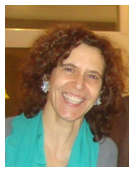 Paula Adam is responsible for Research Assessment at the Agency for Health Quality and Assessment of Catalonia (AQuAS). She has been leading the ISOR Group which carries on studies on the impact of health sciences research in Spain. One achievement of this group has been the accurate impact assessment of a public (non-commercial) call on clinical and health services research (from 1996 to 2004) with multiple ultimate purposes: accountability to donors, advocacy for future public investments in translational research, learning on how to accelerate impact and strategy for shaping future research calls. Another achievement of the ISOR group is the creation of the SIRECS registry database, which collects detailed information on research inputs and throughputs (e.g. clinical trails) for all Catalan biomedical research institutes and centres. One end goal of this registry, apart from accountability and analysis, is the use for implementing ‘pay-for-performance’ formulae in the mechanism for public funding of research in institutes and centres.
Paula Adam is responsible for Research Assessment at the Agency for Health Quality and Assessment of Catalonia (AQuAS). She has been leading the ISOR Group which carries on studies on the impact of health sciences research in Spain. One achievement of this group has been the accurate impact assessment of a public (non-commercial) call on clinical and health services research (from 1996 to 2004) with multiple ultimate purposes: accountability to donors, advocacy for future public investments in translational research, learning on how to accelerate impact and strategy for shaping future research calls. Another achievement of the ISOR group is the creation of the SIRECS registry database, which collects detailed information on research inputs and throughputs (e.g. clinical trails) for all Catalan biomedical research institutes and centres. One end goal of this registry, apart from accountability and analysis, is the use for implementing ‘pay-for-performance’ formulae in the mechanism for public funding of research in institutes and centres.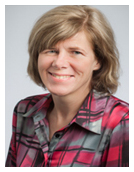 Kathryn Graham is the Director of the Performance Management and Evaluation Department at Alberta Innovates - Health Solutions (AIHS) which is a Canadian-based, publicly-funded, not-for-profit, provincial health research and innovation organization. She has over 20 years of strategic evaluation experience in health care and has worked with provincial and federal organizations in the areas of quality assurance, health research and innovation. Her expertise is in developing performance management and evaluation strategies and implementing these at system, program and network level. Implementation included the application of the Canadian Academy of Health Sciences (2009) research impact assessment framework.
Kathryn Graham is the Director of the Performance Management and Evaluation Department at Alberta Innovates - Health Solutions (AIHS) which is a Canadian-based, publicly-funded, not-for-profit, provincial health research and innovation organization. She has over 20 years of strategic evaluation experience in health care and has worked with provincial and federal organizations in the areas of quality assurance, health research and innovation. Her expertise is in developing performance management and evaluation strategies and implementing these at system, program and network level. Implementation included the application of the Canadian Academy of Health Sciences (2009) research impact assessment framework. Alexandra Pollitt is a Senior Analyst at RAND Europe, where her work focuses primarily on research evaluation. She recently finished work on an international, three-year project looking at the impacts of research in mental health and neuroscience, having previously contributed to a similar study on cardiovascular research. Alex holds an MA (First Class) in Experimental Psychology from Oxford University. Prior to joining RAND, she worked in impact assessment, monitoring and evaluation for an international NGO focusing on education and gender issues in sub-Saharan Africa. Alex also has experience in education assessment and previously worked in psychiatry research at the University of Cambridge.
Alexandra Pollitt is a Senior Analyst at RAND Europe, where her work focuses primarily on research evaluation. She recently finished work on an international, three-year project looking at the impacts of research in mental health and neuroscience, having previously contributed to a similar study on cardiovascular research. Alex holds an MA (First Class) in Experimental Psychology from Oxford University. Prior to joining RAND, she worked in impact assessment, monitoring and evaluation for an international NGO focusing on education and gender issues in sub-Saharan Africa. Alex also has experience in education assessment and previously worked in psychiatry research at the University of Cambridge.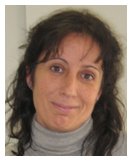 Maite Solans-Domènech is currently a research leader at the Agency for Health Quality and Assessment of Catalonia (AQuAS), where she participates in the monitoring, evaluation and assessment of the impact of biomedical research. She is currently working on the assessment of the impact of the about 100 million Euros that the citizens of Catalonia donated to the TV3 Telethon in the course of its first 20 editions. She is also leading the research characterisation and assessment of the scientific activities performed in the top-quality Health Research Institutes of Spain according to an accredited ranking.
Maite Solans-Domènech is currently a research leader at the Agency for Health Quality and Assessment of Catalonia (AQuAS), where she participates in the monitoring, evaluation and assessment of the impact of biomedical research. She is currently working on the assessment of the impact of the about 100 million Euros that the citizens of Catalonia donated to the TV3 Telethon in the course of its first 20 editions. She is also leading the research characterisation and assessment of the scientific activities performed in the top-quality Health Research Institutes of Spain according to an accredited ranking.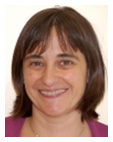 Imma Guillamón is researcher at the Agency for Health Quality and Assessment of Catalonia (AQuAS). She is currently working on studies on the impact assessment of biomedical research. She is currently working on the assessment of the impact of the TV3 Telethon in the course of its first 20 editions. She has conducted several studies tracing the outcomes of the research funded by AQuAS (accountability in relation to public investment) using different methodological approaches.
Imma Guillamón is researcher at the Agency for Health Quality and Assessment of Catalonia (AQuAS). She is currently working on studies on the impact assessment of biomedical research. She is currently working on the assessment of the impact of the TV3 Telethon in the course of its first 20 editions. She has conducted several studies tracing the outcomes of the research funded by AQuAS (accountability in relation to public investment) using different methodological approaches. 


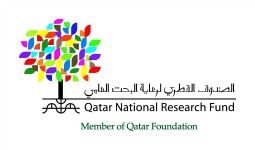
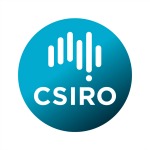
.png)